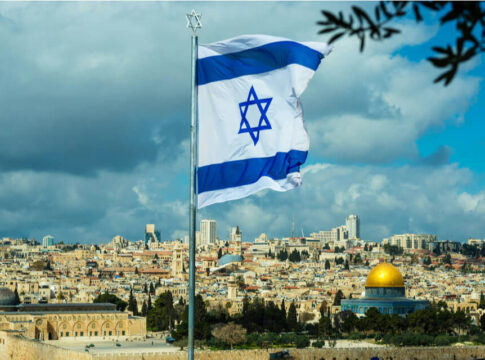In a shocking turn of events, two Israeli human rights organizations have accused their own government of genocide in Gaza, turning the international spotlight onto Israel’s military operations.
Israeli NGOs Accuse Their Own Government
In a move that’s causing waves across the globe, B’Tselem and Physicians for Human Rights–Israel (PHRI) have accused the Israeli government of committing genocide in the Gaza Strip. Their report, revealed in late July 2025, accuses Israel of orchestrating a “coordinated, deliberate action to destroy Palestinian society in the Gaza Strip.” This is the first time major Israeli human rights groups have used such severe language against their own government, marking a significant escalation in rhetoric. The report has immediately caught the attention of international media, raising questions about the motivations and credibility of these organizations.
7 Lefty Outlets Parrot Soros-Funded Groups to Squawk ‘GENOCIDE’ at Israel@CNN @AP @nytimes @FT @Reuters @Guardian @FRANCE24 should all be ashamed of themselves. via @JV3MRC https://t.co/0gHk745soP
— Heather O'Brien Pronouns: Told/You/So 🐰 #🟦 IFBAP (@Heat005498) July 28, 2025
The October 7, 2023, Hamas attack on Israel, which resulted in 1,200 deaths and 251 hostages, triggered the ongoing conflict. Since then, Israeli military operations have faced mounting scrutiny, with the July 2025 report further intensifying the situation. The NGOs’ bold stance has not only stirred debate within Israel but also internationally, as media outlets such as The New York Times and CNN have covered the accusations widely.
The Historical Context
The Israeli-Palestinian conflict is no stranger to controversy and violence. With over a century of conflict, failed peace processes, and deep-seated grievances, the use of the term “genocide” by Israeli NGOs is a new chapter in a long history. While international organizations have accused Israel of apartheid and war crimes, the label of genocide takes the accusations to an unprecedented level. The humanitarian situation in Gaza has deteriorated since the conflict escalated in October 2023, with high civilian casualties and destruction.
Legal proceedings at the International Court of Justice (ICJ) are ongoing, with South Africa bringing a case alleging Israeli genocide in Gaza. The NGOs’ report adds weight to the legal scrutiny facing Israel, although Israeli officials continue to deny the accusations, citing military necessity and the use of human shields by Hamas.
Stakeholders and Motivations
Key players in this situation include B’Tselem and PHRI, the Israeli government, Hamas, and international media. B’Tselem and PHRI, known for their human rights advocacy, aim to pressure Israel and the international community to halt military operations in Gaza. Meanwhile, the Israeli government stands firm in its stance, focused on security and defending its international reputation. The media, on the other hand, plays a crucial role in shaping international perceptions, albeit sometimes criticized for lack of context or perceived bias.
The NGOs’ funding sources, such as the Open Society Foundations, add another layer of complexity, with critics questioning their influence on the NGOs’ agendas. Nonetheless, the power dynamics favor the Israeli government, which holds military and political power, though it faces increasing international legal and reputational pressure.
Global Implications and Future Outlook
The short-term implications are already unfolding, with increased international scrutiny of Israeli actions and potential legal and diplomatic pressure. The long-term consequences could include influence on ICJ proceedings, shifts in international aid, and changes in diplomatic relations. For Israeli society, the accusation has intensified debate and polarization, while the international community faces pressure to reassess relations with Israel.
The economic, social, and political impacts are significant, from potential sanctions on Israeli trade to heightened polarization within Israel and among diaspora communities. The use of “genocide” by Israeli NGOs may set a precedent for other organizations, influencing future advocacy and media reporting standards.

